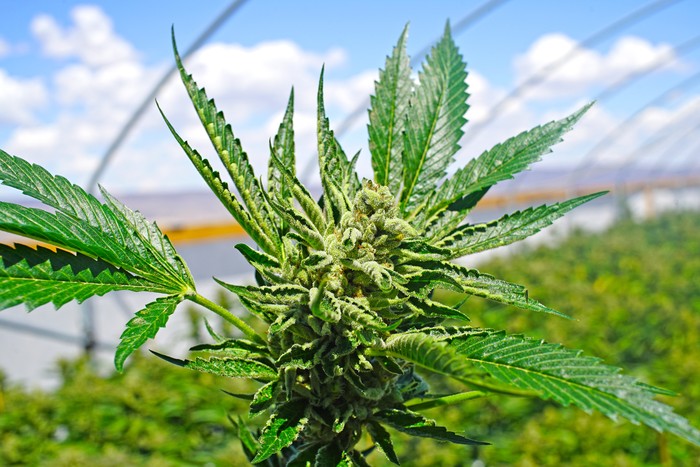Medical cannabis has proven helpful in assisting patients with various diseases, disorders, and maladies since its first uses in ancient times.
With increasing acceptance and legality throughout the United States, México, Latin America, Canada, Europe, and Asia, medical cannabis and cannabis extracts are being recommended by medical professionals along with more traditional treatments. At the root of medical cannabis’ ability to help with difficult, painful symptoms and side effects is the endocannabinoid system and its interaction with the human immune system. An understanding of this interaction is a critical part of understanding how medical cannabis can decrease these symptoms and promote healthy change or homeostasis within the human body and mind.
What is the Immune System & What Does It Do?
The immune system is an integral, working part of every human body, and is made up of two parts: the innate immune system and the adaptive immune system. The innate portion of the human immune system is evolutionary and older than the adaptive system. The innate immune system defends the body against pathogens such as bacterial infections (some examples are bubonic plague, smallpox, strep, and E. coli). Less than 1 percent of bacteria are harmful, but those that are can wreak havoc on the human body. The adaptive immune system allows antibodies to hunt down and destroy certain pathogens it has previously encountered. The body and its immune system learn continually, adapting to new pathogen strains which also evolve over time. The Institute for Quality and Efficiency in Health Care (IQWiG) notes that both the innate and adaptive immune systems are closely tied together and work in tandem to help the body fight off disease or harmful environmental effects.
The purpose of the human immune system is to protect the body from exterior bacteria, viruses, and harmful parasites that might impact health and well-being. Infections and acquired illnesses are its main targets – it identifies dangerous invaders and tries to eradicate them as quickly as possible. The Latin word immunis means “exempt” or “free,” further emphasizing the immune system’s role as a protector and guardian of the body’s health. The immune system is composed of the same components that make up the human body, including at the most basic level of proteins and cells. Human organs are an essential part of the immune system as they help regulate, break down, and disseminate the nutrients and energy sources put into the body. The human immune system functions as a required survival mechanism, allowing the body to identify and expel pathogenic invaders to prevent illness or the effects of harmful environmental substances.
The human immune system has several different tasks, according to theIQWiG. These tasks are as follows:
- Recognition of pathogens and harmful environmental substances
- Neutralization of pathogens (fungi, parasites, viruses, or bacteria) and harmful environmental substances
- Combating compromised cells in the body that have changed due to illness
One of the most significant roles of the immune system is recognition of dangerous pathogens or cells that could compromise the health of the human body; the immune system is activated by proteins on the outside of pathogens, called antigens. Receptors in the immune system’s defense cells have memory capacities, and can readily identify the same pathogens they have already encountered, thus speeding up the body’s defense mechanisms.
What is the Endocannabinoid System?
The endocannabinoid system is a part of the human body’s internal systems, including the nervous system and the immune system. As Bradley E. Alger, Ph. D. observed, the endocannabinoid system serves as a bridge between the physical human body and the human mind. The endocannabinoid system, or ECS, was discovered by Israeli professor, organic chemist, and researcher Raphael Mechoulam, Ph.D. The ECS works with the body’s immune system to balance the reaction to pathogens, thereby decreasing the effects of autoimmune diseases on the body. In the case of those suffering from autoimmune diseases, this is a good thing.
How Does Medical Cannabis Affect the Immune System?
- Addison’s disease
- AIDS/HIV
- Autoimmune cerebellar degeneration, hemolytic anemia, hepatitis, neutropenia, and peripheral neuropathies
- Cancer
- Celiac disease
- Chronic Inflammatory Demyelinating Polyneuropathy (CIDP)
- Crohn’s disease
- Gait Ataxia with Late Age Onset Polyneuropathy (GALOP)
- Graves’ disease
- Guillain-Barre syndrome
- Hashimoto’s thyroiditis
- Immune thrombocytopenia purpura (ITP)
- Lambert Eaton Myasthenic Syndrome
- Lupus
- Multiple sclerosis
- Myasthenia Gravis
- Opsoclonus/Myoclonus (Anti-Ri)
- Polymyalgia Rheumatica (large muscle groups)
- Rasmussen’s Encephalitis
- Raynaud’s phenomenon
- Rheumatoid arthritis
- Scleroderma
- Severe combined immunodeficiency (SCID) or “bubble boy disease”
- Sjogren’s syndrome (salivary glands, tear glands, joints)
- Stiff Person Syndrome
- Temporal Arteritis / Giant Cell Arteritis
- Temporary acquired immune deficiencies (may be caused by medication or chemotherapy)
- Tropical Spastic Paraperesis\ HTLV-1 Associated Myelopathy (TSP/HAM)
- Type 1 diabetes
- Ulcerative colitis
For those suffering with these conditions, certain dosages of medical cannabis may help reduce inflammation due to autoimmune diseases. Indeed, the body’s own natural cannabinoids help fight infection and increase systemic health.
Some phytocannabinoids may assist the ECS and the immune system in decreasing the effects of autoimmune diseases and helping the body feel better. While much research must still be conducted on the effects of medical cannabis and the human immune system, current study results are promising, and may strongly affect future medication and treatment regimens for a large variety of autoimmune diseases.
credit:420intel.com













